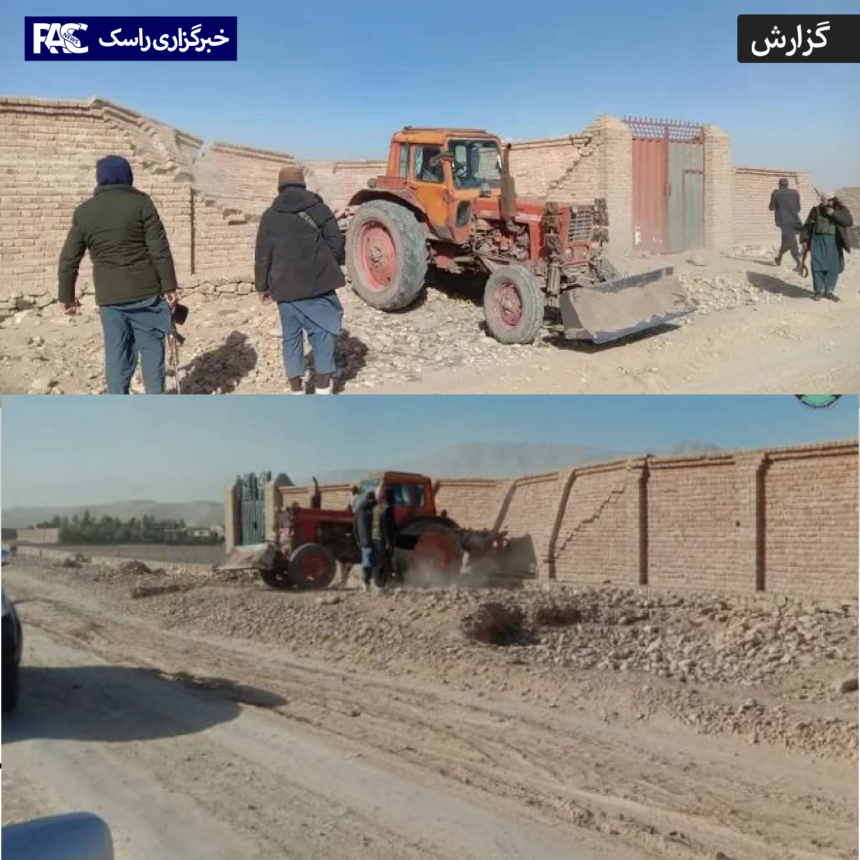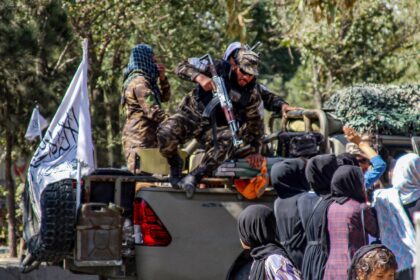RASC News Agency: The Taliban-controlled Ministry of Justice has announced that the residential township known as “Sayed Ishaq Gilani”, located in the Surkh-Rod district of Nangarhar province, has been declared state property following a ruling by a Taliban special court. The move, presented under the pretext of “reclaiming public land,” has sparked widespread criticism from legal experts and property owners who describe it as another act of state-sanctioned confiscation disguised as law enforcement.
In a statement released on Wednesday, October 22, the ministry claimed that the township spans nearly 5,640 jeribs of land. The so-called Commission for Preventing Land Encroachment, an unelected Taliban body that has become notorious for arbitrary land seizures, reportedly referred the case to a “special court” under Article 17 of the Taliban’s Land Encroachment Prevention Law.
According to the ministry’s statement, the court ruled that all lands associated with the township were “government property.” The Taliban further instructed residents and buyers to seek reimbursement from the original sellers an order that observers say is impractical and cynical, given the lack of legal recourse or functioning civil institutions under Taliban rule.
So far, Sayed Ishaq Gilani, a former member of Afghanistan’s parliament and a respected political figure, has not publicly commented on the case. However, those close to him describe the move as a targeted act of political reprisal and part of a broader Taliban campaign to eliminate rival influence through the weaponization of property law.
Local sources and multiple landowners across Afghanistan confirm that the Taliban have, over the past three years, seized dozens of residential townships and thousands of jeribs of private land under the guise of “reclaiming state assets.” Reports from Nangarhar, Balkh, Parwan, and Kabul indicate that the Taliban’s land commission functions as a tool for centralized control and reward distribution, granting confiscated plots to regime loyalists, commanders, and clerics.
Property owners who spoke to RASC News Agency on condition of anonymity said that the Taliban’s investigations into land ownership are neither transparent nor lawful. They describe opaque proceedings, absent documentation, and verdicts predetermined by political favoritism rather than evidence. “The Taliban call it justice,” said one former land developer from Jalalabad, “but it is nothing more than legalized looting carried out in the name of religion and reform.”
Legal analysts warn that in the absence of independent courts and constitutional governance, the Taliban’s actions will deepen property disputes, erode public confidence, and fuel a long-term crisis of ownership. According to one Kabul-based lawyer, “This is not justice it is expropriation. The Taliban have replaced the rule of law with the rule of decree, where power defines ownership.”
In the past year alone, reports have surfaced of Taliban officials forcibly evicting families from their homes under similar decrees, often without compensation. Many of the newly seized lands are later redistributed to fighters and senior clerics as a reward for service or loyalty to the regime. This practice, observers argue, mirrors the feudal power structures of earlier empires, where land ownership was synonymous with allegiance and submission.
The Taliban’s Ministry of Justice, meanwhile, maintains that these actions are part of a campaign to “restore public property” and prevent land usurpation. Yet, as numerous analysts note, the same Taliban leaders have themselves occupied luxurious government buildings and private residences across Kabul and major provinces since 2021 casting doubt on their claims of protecting public assets.
Critics emphasize that the Taliban’s land seizures are not merely administrative overreaches but a calculated strategy to consolidate political and economic control. By destabilizing private property rights, the group effectively weakens civil society and eliminates independent wealth holders who might challenge its rule.
“Every landowner, every entrepreneur, every family that once built something under the republic now lives under the threat of dispossession,” said an economic researcher in Kabul. “The Taliban use the law as a weapon, not as a shield for justice.”
The case of the Sayed Ishaq Gilani Township thus stands as more than a local dispute it is emblematic of how the Taliban’s opaque governance and ideological rigidity have transformed Afghanistan’s justice system into a machinery of coercion.
As Afghanistan continues to face economic collapse, mass displacement, and environmental decline, the Taliban’s land policies have further undermined property security, community stability, and investor confidence. In the absence of transparency or independent institutions, the so-called commissions and courts now operate as instruments of plunder under the banner of governance.
The Taliban’s attempt to present themselves as protectors of “public land” has, in reality, become another chapter in Afghanistan’s long history of authoritarian exploitation, dispossession, and deceit where the powerless are stripped not only of their property but also of their dignity and hope for justice.






